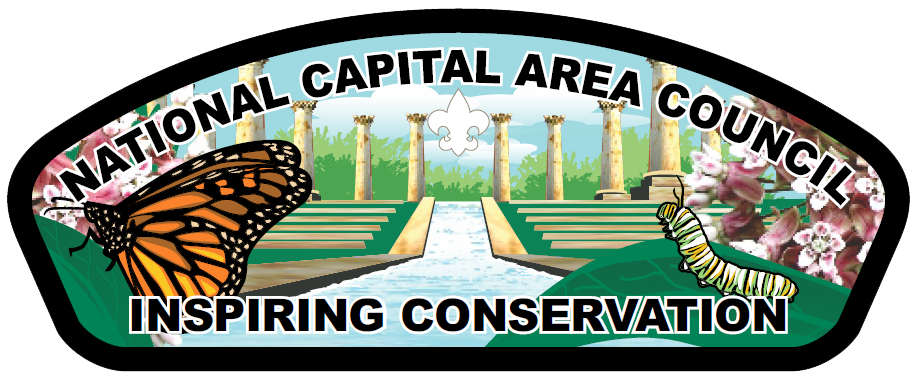 On Saturday, February 2nd, the National Capital Area Conservation Committee kicked-off the 2nd year of Milkweed for Monarchs, Inspiring Conservation in Scouts and Their Families. Hosted by George Washington University. Scouters and their families learned from national monarch expert, Pete Berthelson, about growing milkweed and providing habitat for monarchs and other pollinators. He taught about providing pollen and nectar throughout the entire year, options for growing milkweed and native flowers from seed, the importance of seed-soil contact, and our role in making a difference. The event drew 400 Scouters to GW and is sure to again inspire Scouts to action.
On Saturday, February 2nd, the National Capital Area Conservation Committee kicked-off the 2nd year of Milkweed for Monarchs, Inspiring Conservation in Scouts and Their Families. Hosted by George Washington University. Scouters and their families learned from national monarch expert, Pete Berthelson, about growing milkweed and providing habitat for monarchs and other pollinators. He taught about providing pollen and nectar throughout the entire year, options for growing milkweed and native flowers from seed, the importance of seed-soil contact, and our role in making a difference. The event drew 400 Scouters to GW and is sure to again inspire Scouts to action.
Milkweed for Monarchs
Milkweed for Monarchs 2019 Kick-off
 The following observations from the February 2nd Milkweed for Monarchs Kick-off event were written by Owen M., a Webelos in Pack 1188, and submitted by Brian McDougal. Thank you, Owen, for supporting this important conservation effort, and for your reporting on this event.
The following observations from the February 2nd Milkweed for Monarchs Kick-off event were written by Owen M., a Webelos in Pack 1188, and submitted by Brian McDougal. Thank you, Owen, for supporting this important conservation effort, and for your reporting on this event.
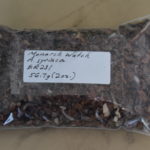 Hi my name is Owen, I am a Webelos Scout. I went to the Milkweed for Monarchs 2019 kickoff event on February 2, 2019. The National Capital Area Conservation Committee held the event in Washington DC at George Washington University. There were a lot of Scouts and Scouters there.
Hi my name is Owen, I am a Webelos Scout. I went to the Milkweed for Monarchs 2019 kickoff event on February 2, 2019. The National Capital Area Conservation Committee held the event in Washington DC at George Washington University. There were a lot of Scouts and Scouters there.
First, Will Roger, chair of the NCAC Conservation Committee told us what the committee does. They encourage conservation. Conservation is when people appreciate the world around them and take care of it. They want it to stay nice. He told us about lots of different awards Scouts can earn, like the Hornaday awards, Conservation Good Turn award, Messengers of Peace, Scout Ranger Patch, Hometown award, and some others.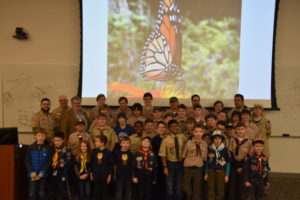
Next, Alex Echols told us about Monarchs and why we should plant Milkweed. We should plant it because there aren’t enough Milkweed plants for the Monarchs to lay their eggs on and it is the only plant Monarchs lay their eggs on. The caterpillars eat the milkweed and that is what makes them toxic to predators.
We watched a video by national Monarch expert Peter Berthelson of Conservation Blueprint and learned how to plant Milkweed. We learned some tips, like if you want to buy Milkweed, don’t buy the tropical kind because it blooms at the wrong time for the Monarchs and doesn’t help them. You should buy native kinds like common milkweed, butterfly milkweed, and swamp milkweed.
Everyone got a packet of Milkweed seeds (for the caterpillars) and a packet of seeds of nectar producing plants (for the adults). All the Scouts got a special patch for the participating in the Milkweed for Monarch program. For more information about Monarchs, please visit https://www.monarchwatch.org/ and https://journeynorth.org/
Owen M.
Webelos Scout
Pack 1188
Looking for more info on planting your milkweed? Check out this step by step guide and tip sheet.
Milkweed Seed Planting Instructions
- In March plant seeds indoors to grow seedlings for later transplant
- Punch holes in bottom of cup a Solo cup (Support interior of cup when punching holes)
- Use potting soil for growing medium and fill cup and lightly pack down
- Plant seeds, approximately 3 to a cup, plant half inch deep. Lightly water and keep slightly Overwatering will kill plants. Check daily – may only need watering every few days. Place in south facing window – with something under cup
- Seeds will germinate typically in 15 – 35 days. Not all seeds will germinate. Be patient and provide consistent attention – slight watering and sun
- When seedlings are 6 – 10 inches high and the outside temperature is warm start to put outside during day (commonly late April but depends on weather)
- Use common sense – don’t “sunburn” your seedlings by putting them out directly into really hot day
- Bring indoors and protect from frost and heavy rains
- Plant milkweed seedlings (typically May – around Mothers Day good target)
- Select plot free of grass where milkweed can grow throughout year
- Dig hole just slightly larger than cup seedling is growing in
- Plant – gently pressing soil around seedling – plant level with ground
- Gently water and track for moisture for the next month
- Manage Monarch Plot and watch for monarch caterpillars on milkweed throughout year. They may appear as early as June or as late as August
- Plant your additional pollinator plants near the milkweed – again May is good time to plant those seeds directly into the ground
- In fall you may want to collect seeds after milkweed seed pods dry
- Milkweed plant should re-emerge next year and hopefully may even spread
You can always check other recommendations on milkweed and monarch management. There are plenty of resources. Here is the link to today’s video.
https://www.dropbox.com/s/x4h09burhqv8r7d/Boy%20Scouts%20-%20How%20to%20Grow%20Milkweed.mp4?dl=0
NCAC Set for February 2nd Kick Off of 2019 Milkweed for Monarchs Conservation Project
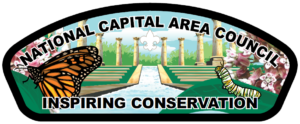 On Saturday, February 2nd, the National Capital Area Conservation Committee will kick-off the 2nd year of Milkweed for Monarchs, Inspiring Conservation in Scouts and Their Families. This year’s program is again presented by the National Capital Area Council, Boy Scouts of America, and will be hosted by George Washington University.
On Saturday, February 2nd, the National Capital Area Conservation Committee will kick-off the 2nd year of Milkweed for Monarchs, Inspiring Conservation in Scouts and Their Families. This year’s program is again presented by the National Capital Area Council, Boy Scouts of America, and will be hosted by George Washington University.
Scouters and their families will have the opportunity to learn from national monarch expert, Pete Berthelson, about growing milkweed and providing habitat for monarchs and other pollinators. He’ll teach about providing pollen and nectar throughout the entire year, options for growing milkweed and native flowers from seed, the importance of seed-soil contact, and our role in making a difference.
“Monarch butterflies are crucial to agriculture and plants of all kinds,” said Will Rodger, Chair of the NCAC Conservation Committee. “We can save them as long as Scouts and other Americans ‘Do Their Best’ to help them.”
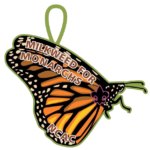 The youth-friendly presentation is sure to inspire attendees to take action to help save the vanishing monarch butterfly through the building of a healthy and sustainable pollinator habitat. In addition, Scouts and others who attend will receive a free Milkweed for Monarchs patch, plus an easy-to-use seed packet of milkweed and other native, nectar-producing plants that nourish monarch caterpillars and butterflies throughout the growing season.
The youth-friendly presentation is sure to inspire attendees to take action to help save the vanishing monarch butterfly through the building of a healthy and sustainable pollinator habitat. In addition, Scouts and others who attend will receive a free Milkweed for Monarchs patch, plus an easy-to-use seed packet of milkweed and other native, nectar-producing plants that nourish monarch caterpillars and butterflies throughout the growing season.
“Planting and encouraging milkweed and wildflowers are the most important things we can all do right here, right now,” said Rodger.
Scouters and others are invited to attend, but registration is limited. The event will take place on February 2nd from 10 am to 12 pm at George Washington University, Room 113, 1957 E St. NW, Washington DC. For more information or to register, please visit www.ncacbsa.org/monarchs.
